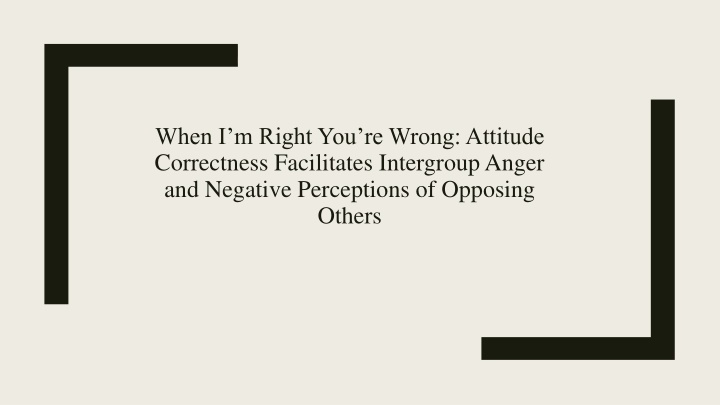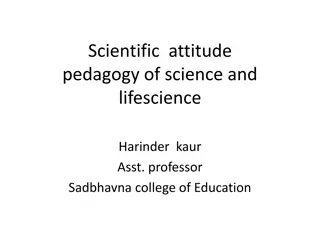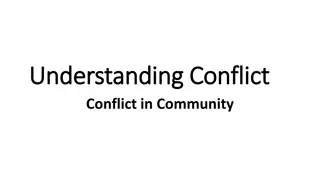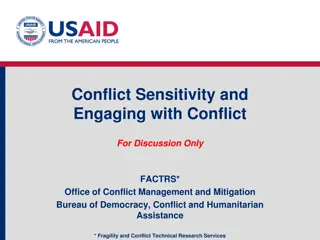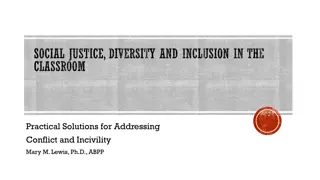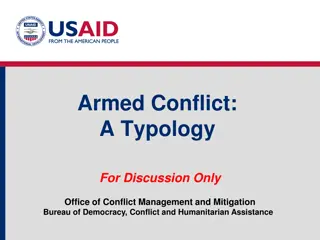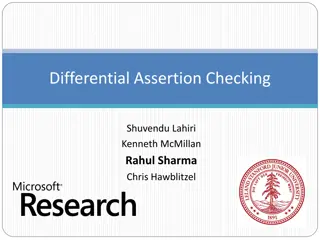Attitude Correctness in Intergroup Conflict
This research delves into how attitude correctness impacts intergroup anger, negative perceptions, and intentions to approach outgroups. It examines factors contributing to conflict, hypotheses, methodology, and expected results.
Download Presentation

Please find below an Image/Link to download the presentation.
The content on the website is provided AS IS for your information and personal use only. It may not be sold, licensed, or shared on other websites without obtaining consent from the author.If you encounter any issues during the download, it is possible that the publisher has removed the file from their server.
You are allowed to download the files provided on this website for personal or commercial use, subject to the condition that they are used lawfully. All files are the property of their respective owners.
The content on the website is provided AS IS for your information and personal use only. It may not be sold, licensed, or shared on other websites without obtaining consent from the author.
E N D
Presentation Transcript
When Im Right Youre Wrong: Attitude Correctness Facilitates Intergroup Anger and Negative Perceptions of Opposing Others
Purpose The purpose of this research is to examine factors that contribute to intergroup conflict.
Background Attitude certainty Attitude clarity Attitude correctness Attitude correctness and conflict (Rios, DeMarree, & Statzer, 2014). Attitude correctness and persuasion (Cheatham & Tormala, 2015). Intergroup conflict and emotions (Mackie & Devos, 2000). Intergroup conflict and perception (Fiske & Cuddy, 2002)
Hypotheses We predict that Increasing attitude correctness will cause more intergroup anger and intentions to approach the outgroup. Perceptions of lower outgroup competence. And, perceptions of lower outgroup warmth.
Method Independent Variable: Attitude clarity and attitude correctness Then we will show participants an online-profile of an out-group member. Dependent Variable: The participants perception of the opposing person by describing their warmth and competence, their willingness to confront them, and their emotions.
Expected Results, What we learned, and Practical Importance Expected Results: We expect high attitude correctness to increase intergroup anger and intentions to approach the outgroup View outgroups as low in competence and warmth. What will we learn: We will learn that attitude correctness is one of the factors that lead to intergroup conflict. Practical Importance: If we can understand what causes intergroup conflict then we can design interventions to reduce it.
